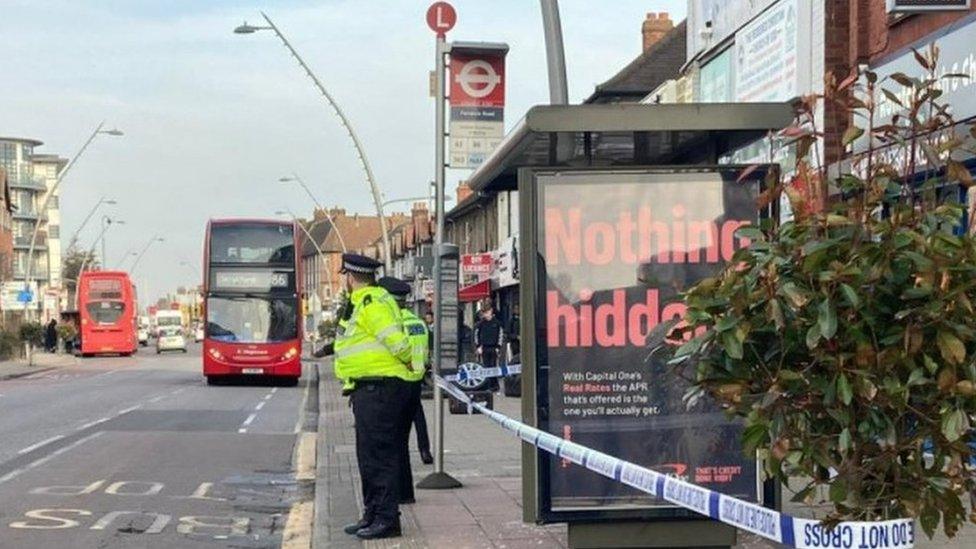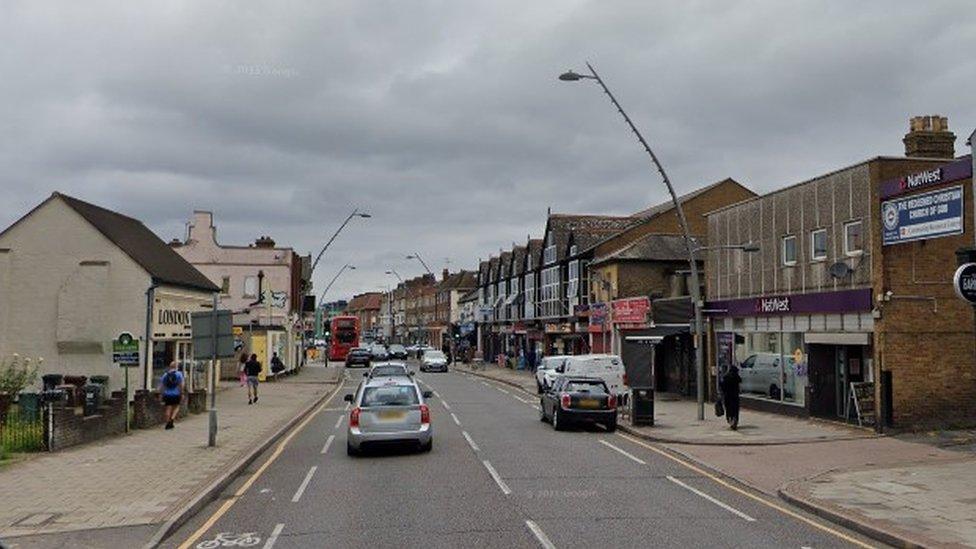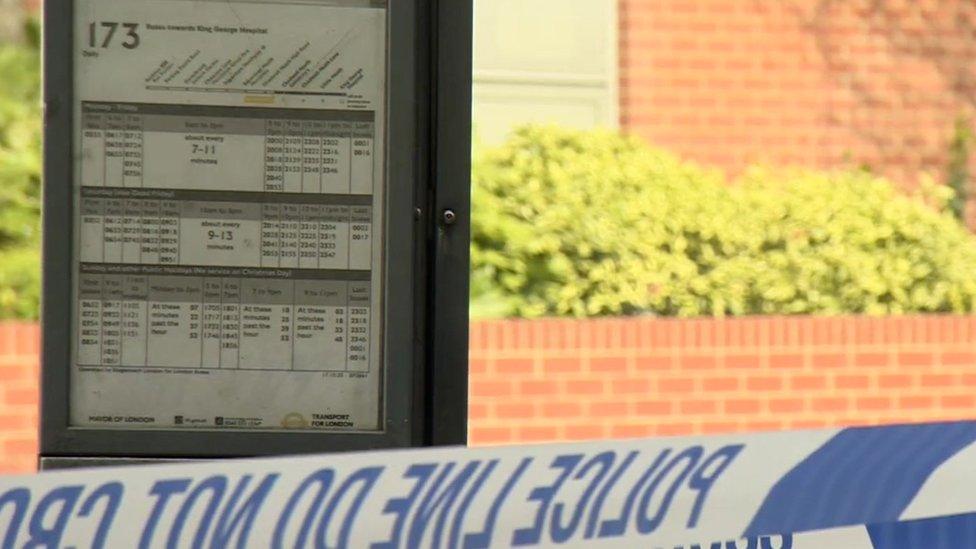Chadwell Heath: Boy, 16, dies after being stabbed on board bus
- Published

The attack happened on a bus and the boy died later in hospital
A 16-year-old boy has died after being stabbed on board a bus in east London.
The teenager was on the 173 bus in High Road, Chadwell Heath, when he was injured on Monday afternoon and taken to hospital in a critical condition.
He died in the early hours of Tuesday, the Metropolitan Police said. His family has been told.
An 18-year-old man was initially arrested nearby on suspicion of attempted murder, which has now been changed to suspicion of murder.
He remains in custody.
'Traumatised'
People in the area expressed their shock, with one man saying he realised he knew the victim when he saw police trying to save his life at the bus stop.
Speaking to BBC London he said: "It was someone that I knew, a neighbour for seven years and he used to pass the shop with his twin brother every day, so when I saw him on the ground there, my heart fell away because it was someone that I knew."
Another man said: "There were young girls and boys going to school. How does it make them feel, that there is some level of violence below the surface that ends up in someone losing their life at 16? It's awful, just awful."
A woman who works nearby said she and her staff were "traumatised" to see "a little boy was dying and we couldn't do nothing to help".
Police urged witnesses or anyone with information to contact them.
Ch Supt Paul Trevers said he could "only imagine his family's anguish".
"I know how deeply this will be felt in the local community and there will be extra officers patrolling to reassure you and answer your questions. Please do speak to the officers about your concerns, they are there to listen to you and do all they can to help."

The boy was stabbed while on a bus on High Road in Chadwell Heath
Last year, a record number of teenagers met violent deaths in London, with 30 homicides recorded by the Metropolitan Police, passing a previous peak of 29 in 2008.
"As a police officer I know that we cannot tackle violent crime alone, it needs everyone to work together," Ch Supt Trevers added.
"Whether it is telling police about those who carry weapons, or talking to young people about the dangers of knife crime, what we all do can make a difference."

Police are urging anyone with information to come forward

Analysis
By Lauren Moss, BBC Home Affairs Correspondent
The second fatal teen stabbing in the capital in 2022 could lead to some wondering what lessons still have to be learned from the previous devastating year of bloodshed.
Thirty young lives were lost in London in 2021, the worst on record. Twenty-seven of those were stabbings, and by mid-March last year nine men under the age of 20 had been killed.
On the day another family mourn the death of a schoolboy, stabbed on a bus in the middle of the afternoon, another new scheme aimed at reducing violent crime among young people was launched across London's 32 boroughs.
Run by City Hall's Violence Reduction Unit, thousands of 11-17 year olds will be offered cognitive behavioural therapy called "Your Choice" aimed at "breaking the cycle". It's part of a £10m programme over three years.
But if this latest tragedy tells us anything though, it's that there is no simple solution. Tackling serious violence may well be among the mayor and the Met's top priorities but that is unlikely to bring much comfort to those who have already lost so much.

The Mayor of London, Sadiq Khan, said he was "truly devastated" by the death and his thoughts were with the boy's family and friends.
Urging anyone with information to come forward, he stressed "there is no honour in staying silent".
He added: "The Met Police have launched a murder investigation and are doing everything possible to bring those responsible to justice."

Follow BBC London on Facebook, external, Twitter , externaland Instagram, external. Send your story ideas to hellobbclondon@bbc.co.uk, external